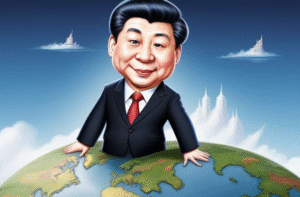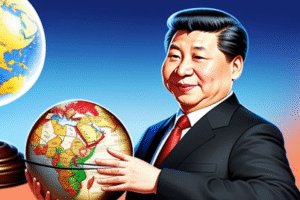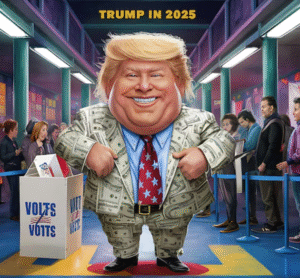$SPY $DIA $QQQ
#TrumpAdministration #EconomicPolicy #WealthRedistribution #TaxCuts #Tariffs #JustinWolfers #USPolitics #FinanceNews
### Trump’s News: A Shift in Wealth Dynamics
According to Economist Justin Wolfers, the recent fiscal maneuvers under the Trump administration signify a major shift in financial distribution, marking what could be the most significant wealth transfer from the lower to the upper echelons in the annals of U.S. history. This shift is primarily driven by strategic tax cuts, stringent tariffs, and notable slashes in government spending.
### Understanding the Impact of Fiscal Policies
Tax Cuts: A Boon for the Wealthy?
The tax reform package, often touted as a stimulant for economic growth, disproportionately favors wealthier individuals and corporations. These groups benefit from significant reductions in tax obligations, enhancing their financial standing and influence.
The Role of Tariffs
Concurrently, the imposition of tariffs has a contrasting effect on different economic segments. While intended to bolster domestic industries by making imported goods costlier, these tariffs also increase the price of consumer goods, burdening lower-income families.
Budget Cuts: Who Bears the Brunt?
Government spending cuts further complicate the scenario. Reductions in social services and welfare programs, critical for the less affluent, mean that these groups face increased hardships, lacking the same safety nets available to wealthier individuals.
### The Broader Economic Consequences
This amalgamation of fiscal strategies fosters an environment where the rich get richer, and the poor face increasing challenges. The long-term implications of these policies could lead to a more divided society, with wealth concentrated in the hands of a few. For more detailed insights, readers can explore the related dynamics in the stock market on [Financier News](https://financier.news/category/stock/).
### Final Thoughts
This profound redistribution of wealth, as analyzed by Justin Wolfers, raises critical questions about the sustainability and fairness of such fiscal policies. As the debate continues, it becomes imperative for policymakers to consider the broader impacts of their decisions on all economic strata. Adjusting these policies could lead to a more equitable distribution of wealth and a healthier overall economy.
In conclusion, the current economic strategies signify a pivotal moment in U.S. economic history, potentially reshaping the financial landscape for generations to come. For those looking to understand the implications further, detailed analysis and updates are available, offering a deeper dive into how these policies play out across different sectors of the economy.











Comments are closed.